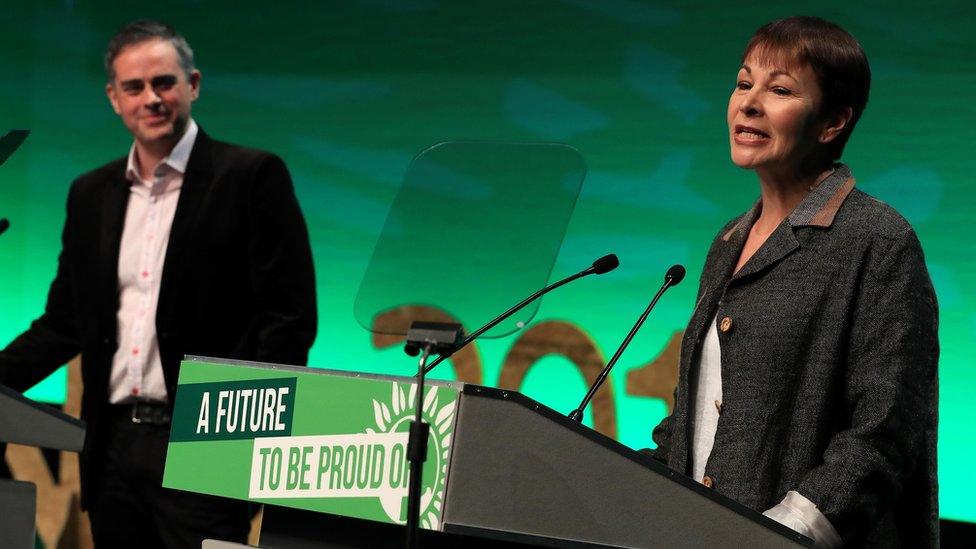Decriminalise prostitution, Green Party urges
- Published

Jonathan Bartley and Caroline Lucas are the joint leaders of the Green Party of England and Wales
The Green Party of England and Wales says it would decriminalise the sale and purchase of sex as part of its manifesto for women.
It said the measure, following UN and Amnesty International recommendations, would keep sex workers safe.
It is also promising to end asylum detention, starting with the release of vulnerable female detainees.
Deputy leader Amelia Womack said detention was "inhumane, costly and totally unnecessary".
In England, Wales and Scotland, selling and paying for sex is not against the law but many activities linked to it, such as brothel-keeping, kerb-crawling and soliciting sex in a public place, are outlawed.
In 2014, Northern Ireland became the first part of the UK to pass legislation making the purchase of sexual services illegal, following other countries such as Sweden, Norway and Iceland.
Amnesty International's support for the decriminalisation of prostitution sparked a fierce debate, and criticism by several women's groups
But the Green Party said that "making sex work illegal only reduces safety".
It said it would also amend sex workers' existing criminal records and have "zero tolerance of coercion, violence or sexual abuse".
'Speaking out'
The party launched its women's manifesto outside Yarl's Wood detention centre for female asylum seekers, ahead of a demonstration at the Bedfordshire facility.
Other measures included preserving women's healthcare facilities, reinstating sexual health services and ending pay freezes for public sector workers.
The party would also roll out a UK-wide strategy to tackle domestic violence, scrap the so-called "rape clause" for child benefit claimants and restore legal aid so that victims do not have to face their abusers in court.
"The bold policies we're announcing today show that the Green Party is committed to standing up for everyone, and we are not afraid to speak out about issues other parties would rather shy away from," Ms Womack added.
Her party, meanwhile, has accepted an invitation to take part in a BBC Election Questions programme on 4 June, in a change from the original scheduling.
BBC head of newsgathering Jonathan Munro told the News Watch programme the BBC had reflected on its proposed initial format, announced earlier this month, and decided the "gap" between the participation of UKIP and the Greens in the overall schedule was "too great".
He said that, based on its performance in general, local and European elections since 2010, the Green Party could not have "equivalence" with the larger parties.
But he said the BBC had listened to those who expressed concerns about its level of representation and come up with a "good compromise" which he said he was "really pleased" had been accepted by the party.